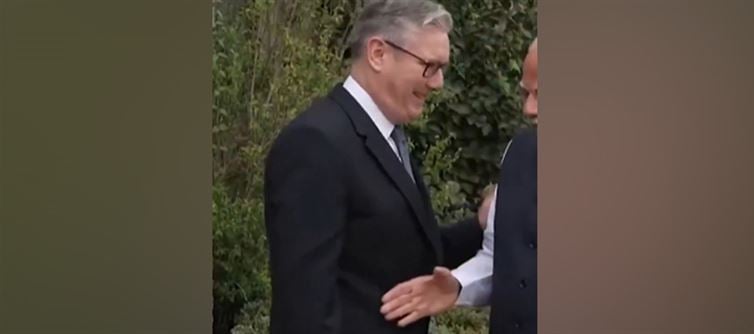
The video footage has ignited considerable discussion on social media and in diplomatic circles. Starmer’s body language — which seemed cold and dismissive — was interpreted by many as a public snub, intentional or not. Whether it was a cultural misread, personal discomfort, or a deliberate diplomatic signal remains unclear, but the optics were undeniably embarrassing for the indian delegation. Modi, known for his characteristic warmth and symbolic gestures like hugs and handshakes with world leaders, was left visibly awkward in front of the cameras. Starmer, meanwhile, looked disengaged, as though he would rather avoid the physical interaction altogether. This stark contrast did not go unnoticed and has raised questions about the tone and warmth of future UK-India relations under the new Labour government.
Beyond the surface-level awkwardness, the incident reflects the fragile nature of global diplomacy, where perception often weighs as heavily as policy. Moments like these, though small in isolation, can carry symbolic significance, influencing public perception and bilateral sentiment. In an age where every gesture is recorded, dissected, and viral within minutes, leaders must tread carefully in how they conduct themselves on the global stage. For now, while the Free Trade Agreement remains a concrete achievement, this uncomfortable moment may linger longer in the public memory — not for the deal that was signed, but for the handshake that wasn’t.




 click and follow Indiaherald WhatsApp channel
click and follow Indiaherald WhatsApp channel